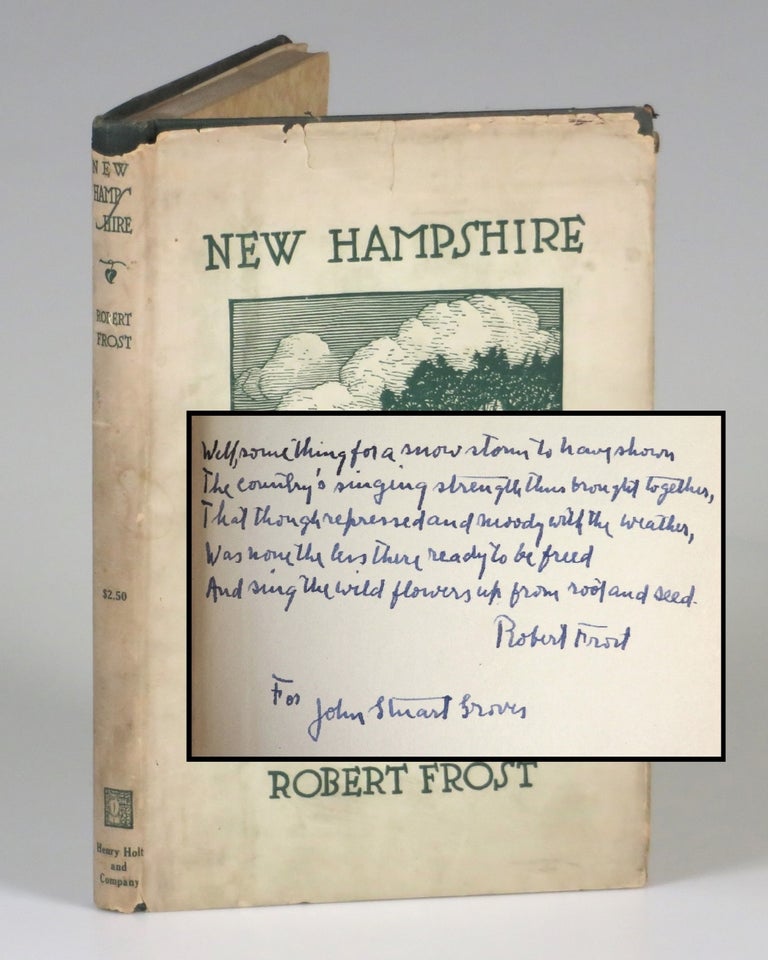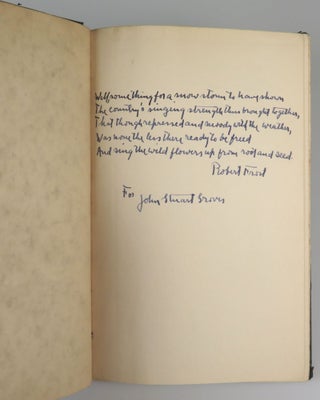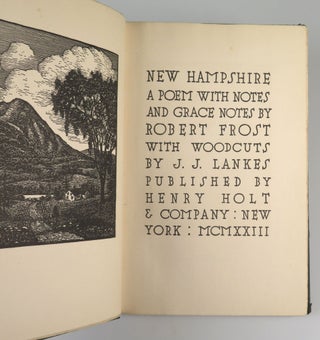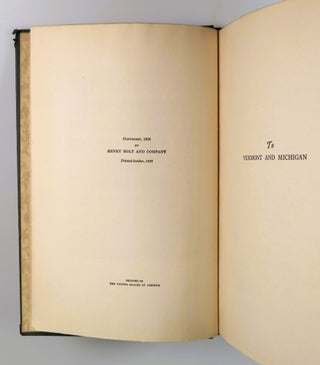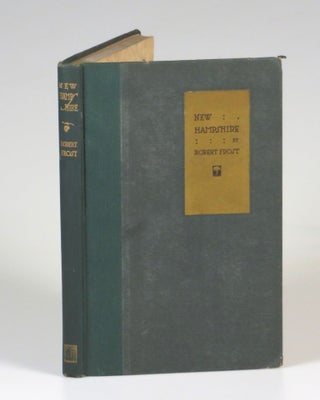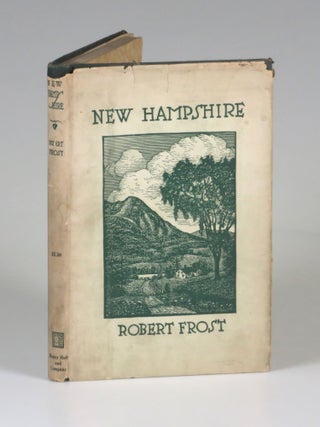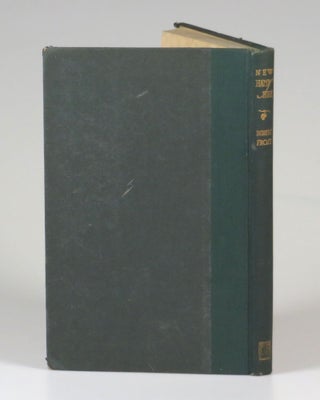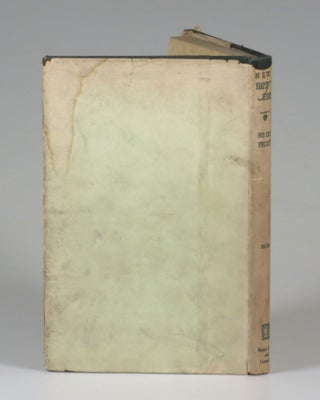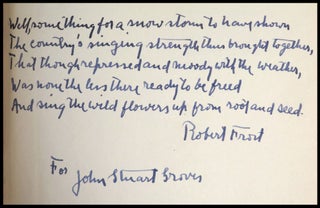New Hampshire: A Poem with Notes and Grace Notes, inscribed by Frost with the final stanza of his poem "Our Singing Strength"
New York: Henry Holt and Company, 1923. J. J. Lankes. First edition, first printing. Hardcover. This is a jacketed and inscribed first trade edition, first printing of the book that won Robert Frost his first Pulitzer Prize. Frost inked this copy in eight lines on the front free endpaper recto with the final five-line stanza of the poem “Our Singing Strength” (printed at p.110): “Well, something for a snowstorm to have shown | The country’s singing strength thus brought together, | That through repressed and moody with the weather, | Was none the less there ready to be freed | And sing the wild flowers up from root and seed. | Robert Frost | For | John Stuart Groves”. The sole previous ownership mark we find in the book is the small, illustrated Morocco bookplate of “JOHN STUART GROVES” affixed to the front pastedown.
Groves (1881-1958) was an accomplished Delaware bibliophile. On 1 January 1933 Frost wrote “Dear Mr. Groves: I shall be glad to write my name in your copies of my books. I have a warm place in my heart for firsts and should be a fancier and collector myself if I had ever got round to it. My winter address is Amherst Mass. Sincerely yours Robert Frost”. (Letters of Robert Frost, Vol. III, p.305)
The first edition is a lovely production, bound in quarter dark green linen cloth over dark green paper-covered boards, with a gold paper label on the front cover illustrated and printed in black, and gilt print and decoration on the spine. The contents are printed on white wove paper with gilt top edge, illustrated with four woodcuts by J. J. Lankes (1884-1960), and bound with mottled tan endpapers and yellow and green head and foot bands.
This copy approaches very good condition in a good dust jacket. The lovely but fragile publisher’s binding is square, tight, and unfaded. Wear is substantially confined to the spine ends and corners, where the paper is nicked, exposing the card beneath. The board surfaces are only lightly scuffed with a few, trivial blemishes. The contents are clean with no spotting and mild age-toning only evident on the untrimmed fore and bottom edges. The top edge is dust-dulled. The first printing dust jacket is unclipped, retaining the original “$2.50” price. The jacket is soiled, the spine mildly toned, a moisture stain spanning the upper rear flap fold. The jacket is substantially complete, with minor loss to the flap fold extremities and spine ends and general wear along the top edges with short closed tears and wrinkling at the upper front face. The jacket is protected beneath a clear, removable, archival cover.
Iconic American poet Robert Lee Frost (1874-1963), the quintessential poetic voice of New England, was actually born in San Francisco and first published in England. When Frost was eleven, his newly widowed mother moved east to Salem, New Hampshire, to resume a teaching career. There Frost swiftly found his poetic voice, infused by New England scenes and sensibilities. Promising as both a student and writer, Frost nonetheless dropped out of both Dartmouth and Harvard, supporting himself and a young family by teaching and farming. A 1912 move to England with his wife and children – “the place to be poor and to write poems” – finally catalyzed his recognition as a noteworthy American poet. There Frost published A Boy’s Will (1913) and North of Boston (1914), establishing his reputation. Mountain Interval (1916) and Selected Poems (1923) followed.
New Hampshire was published in November 1923 (contrary to the “October, 1923” statement on the title page verso) and, in 1924, won Frost the Pulitzer Prize “For the best volume of verse published during the year by an American author”. It was to be the first of his eventual four Pulitzer Prizes for poetry (1931, 1937, and 1943). New Hampshire includes several of Frost’s most well-known poems, including “Stopping by Woods on a Snowy Evening”, “Nothing Gold Can Stay”, “Fire and Ice”, and “Dust of Snow”.
Reference: Crane A6. Item #007131
Price: $7,000.00

